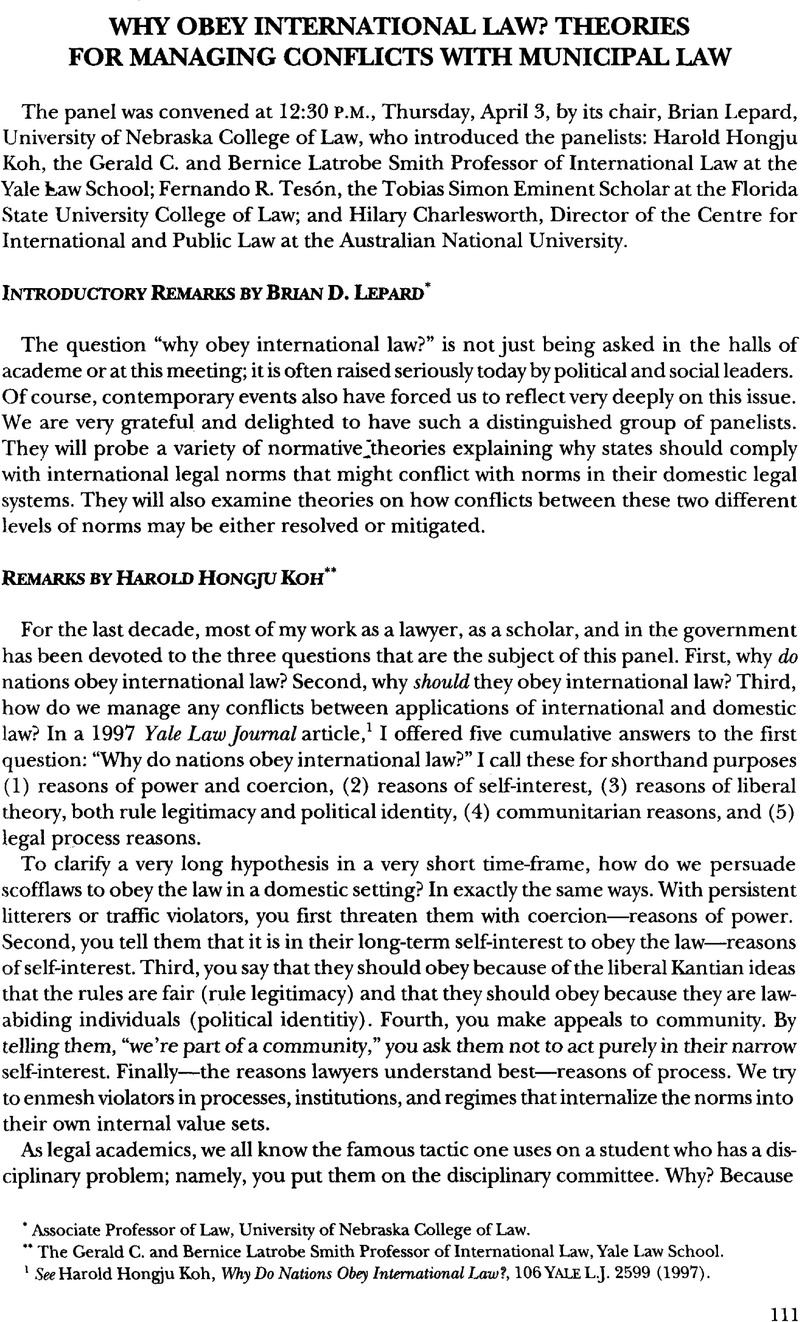No CrossRef data available.
Published online by Cambridge University Press: 28 February 2017

1 See Koh, Harold Hongju, Why Do Nations Obey International Law?, 106 Yale L.J. 2599 (1997)CrossRefGoogle Scholar.
2 See Abram Chayes & Antonia Handler Chayes, The New Sovereignty: Compliance with International Regulatory Agreements (1995).
3 Jesse Bravin, Panel Says U.S. Policy on Detainees in Cuba Breaks International Law, Wall St.J., Mar. 14, 2002, at B2; Inter-Am. Comm’n on Human Rights, Request for Precautionary Measures, Detainees in Guantanamo Bay, Cuba (Mar. 12,2002), available at <http://www.photius.com/rogue_nations/guantanamo.html>; Regina ex rel. Abbasi v. Sec’y of State for Foreign & Commonwealth Affairs, 2002 E.W.C.A. Civ. 1598.
4 536. U.S. 304, 316 n.21 (2002) (“[W]ithin the world community, the imposition of the death penalty for crimes committed by mentally retarded offenders is overwhelmingly disapproved.”). The case invalidated executions of persons with mental retardation.
5 Avena and other Mexican Nationals (Mexico v. United States of America) (ICJ 2003), available at <http://www.icj-ci/cij.org/icjcuww/idcocket/imus/imusframetiton>.